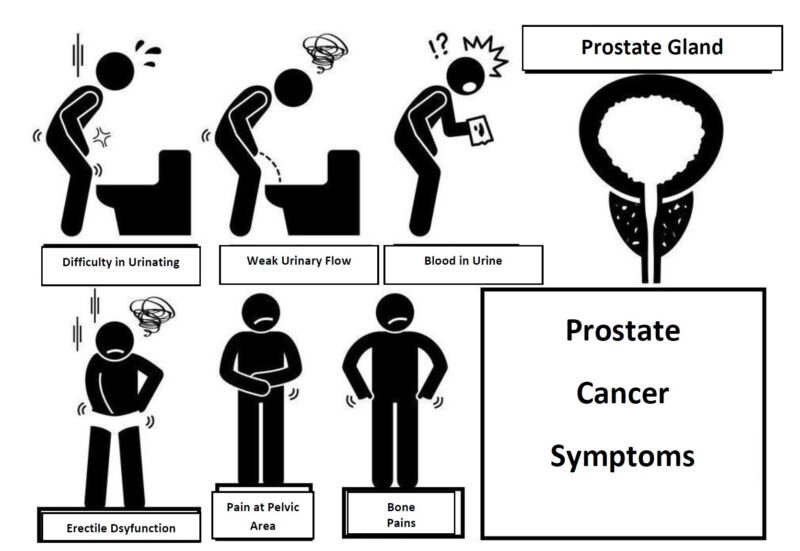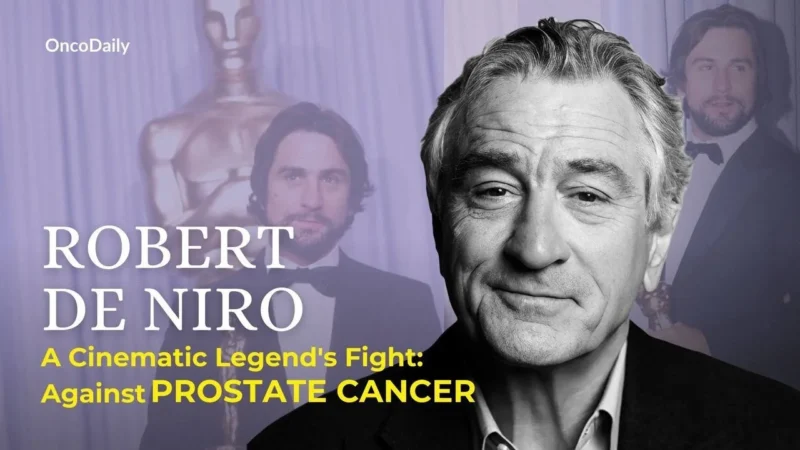American actor Ben Stiller, known for his roles in hit comedies like Zoolander and Tropic Thunder, made headlines in 2016 when he revealed his 2014 prostate cancer diagnosis. At the time, Stiller had no symptoms, and his decision to undergo a PSA (Prostate-Specific Antigen) test at age 48 led to the early detection of his cancer. His openness about the experience has sparked important conversations about early cancer screenings, encouraging men to be proactive about their health.

How Did Ben Stiller Get Diagnosed with Prostate Cancer?
Ben Stiller’s prostate cancer diagnosis came as a surprise since he had no symptoms when he decided to undergo a PSA (Prostate-Specific Antigen) test. In 2014, at the age of 48, his doctor recommended the test as part of a routine check-up, although PSA screening is often advised for men over 50. Stiller, initially unfamiliar with the test, took the advice and underwent the screening, which eventually led to the discovery of his prostate cancer at an early stage.
Stiller credited the PSA test for saving his life by catching his cancer early, emphasizing the importance of screenings before age 50. He credited the PSA test with saving his life, emphasizing the importance of early detection. His case underscores the potential life-saving role of proactive health measures, even when no symptoms are present. Through his public discussions, Stiller highlighted the value of early screenings, encouraging men to have informed conversations with their doctors about prostate cancer testing.
Symptoms
Even though Ben Stiller had no symptoms before his prostate cancer diagnosis, men should be aware of the common symptoms that can indicate prostate cancer. These include urinary issues such as difficulty starting urination, weak or interrupted flow, frequent urination (especially at night), pain or discomfort during urination, and blood in the urine or semen. Some men may also experience pain in the lower back, hips, or pelvis.
However, early-stage prostate cancer often presents no symptoms, as in Stiller’s case. This makes regular screenings, such as the PSA test, crucial for early detection. By identifying prostate cancer before symptoms develop, men have a greater chance of successful treatment and recovery. Stiller’s experience highlights how early screenings can detect cancer early, even in the absence of symptoms.

What Were Ben Stiller’s Initial Reactions to His Diagnosis?
Ben Stiller was shocked and terrified when diagnosed with prostate cancer, especially since he had no symptoms. He said, “It just stopped everything in your life because you can’t plan for a movie because you don’t know what’s going to happen.” Concerned about how the diagnosis would impact his family, he turned to the internet for information, finding comfort in seeing others like John Kerry who had faced similar battles.
Stiller took proactive steps, including researching his condition and treatment options. He credited the PSA test for detecting his cancer early, stating, “If I hadn’t taken the PSA test—my doctor started giving it to me at 46—I still wouldn’t have known.” By sharing his experience, Stiller emphasized the importance of early detection and its potential to save lives.
What was the Prognosis?
Ben Stiller was diagnosed with prostate cancer in 2014, and his doctors informed him that it was at an early stage. Specifically, he had stage 1 prostate cancer, which is localized and has not spread beyond the prostate gland. This early-stage diagnosis generally has a favorable prognosis and is associated with a high likelihood of successful treatment.
Stiller’s Gleason score, which helps determine the aggressiveness of the cancer, was 7. The Gleason score ranges from 6 to 10, with higher scores indicating more aggressive cancer. A Gleason score of 7 suggests that the cancer was moderately aggressive. This score influenced Stiller’s treatment decisions, leading him to undergo a combination of treatments to manage the cancer effectively.
He chose to undergo a combination of surgery and radiation therapy. This approach is often recommended for moderately aggressive cancers to maximize the chances of removing and controlling the disease. According to the American Cancer Society, the 5-year relative survival rate for localized prostate cancer is nearly 100%, and the 10-year survival rate is around 98% (source: American Cancer Society, Prostate Cancer Statistics).
What Treatments Did Ben Stiller Undergo?
Ben Stiller’s treatment plan for prostate cancer included a radical prostatectomy, a surgery to remove the prostate gland. Following the surgery, he underwent radiation therapy as an additional measure to ensure any remaining cancer cells were addressed.Physically, Stiller experienced common post-surgery effects such as fatigue and changes in urinary and sexual function. Emotionally, he described the journey as challenging but found strength through support from his family and medical team.His treatment choices were influenced by the early stage of his cancer and the moderate aggressiveness indicated by his Gleason score. These factors led him to opt for a comprehensive approach combining surgery and radiation to maximize his chances of successful treatment.
Surgery and Recovery
Ben Stiller had a radical prostatectomy to remove his prostate gland and some surrounding tissue. This surgery can be performed using traditional open methods or minimally invasive techniques like laparoscopic or robotic-assisted surgery.
Recovery:
- Initial Recovery: He spent time in the hospital and several weeks at home. Full recovery can take months, with adjustments needed for changes in urinary and sexual function.
- Follow-Up Care: Regular check-ups monitored his recovery and cancer status.
Side Effects:
- Incontinence: Managed with physical therapy and possibly medications.
- Erectile Dysfunction: Addressed with medications, counseling, and possibly penile rehab.
Stiller’s proactive approach and support helped him manage these challenges and raise awareness about the impact of prostate cancer treatments.
Post-Surgery Monitoring
Post-surgery monitoring for prostate cancer patients is crucial for detecting any signs of cancer recurrence and ensuring ongoing health. This typically includes:
- Regular PSA Tests: These blood tests measure the level of prostate-specific antigen (PSA) in the blood. Rising PSA levels can indicate a potential recurrence of cancer.
- Follow-Up Visits: Routine check-ups with the healthcare provider help monitor recovery and address any issues related to treatment side effects or overall health.
Ben Stiller has continued to emphasize the importance of ongoing vigilance in managing his health. He has been open about his regular PSA testing and follow-up care, highlighting that continuous monitoring is essential to catch any potential issues early. His experience underscores the need for patients to remain proactive and engaged in their long-term health management after treatment
How Did Ben Stiller Overcome Prostate Cancer?
Ben Stiller showed remarkable resilience during his prostate cancer treatment. He stayed physically healthy through his treatment plan and lifestyle changes, including diet and exercise. His family provided essential emotional support throughout his recovery. Stiller has also been a strong advocate for early prostate cancer screening, using his experience to raise awareness and encourage others to get tested.
Support from Family and Friends
Ben Stiller’s family played a crucial role in providing emotional support during his prostate cancer treatment. His wife, Christine Taylor, and their children were a significant source of strength and encouragement.
Stiller has spoken about how his family helped him stay positive through the ordeal. In interviews, he mentioned, “The support from my wife and kids was incredible. They helped me through the toughest moments and kept me focused on recovery.” He highlighted how their presence and care were vital in maintaining his mental resilience.
Taylor’s unwavering support and their family’s collective strength were instrumental in Stiller’s ability to remain hopeful and engaged in his treatment process. Their emotional support exemplified the powerful impact a supportive family can have during a health crisis.

Mental and Emotional Challenges
Ben Stiller’s prostate cancer diagnosis and treatment had a profound psychological impact on him. The fear of cancer recurrence was a significant concern, but he coped by focusing on proactive measures and maintaining a positive outlook. Stiller admitted that the uncertainty of the disease initially overwhelmed him, but he managed his anxiety through regular check-ups, support from his family, and staying informed about his health.
He reflected on how the experience changed his perspective on life. In interviews, Stiller shared that his diagnosis made him more appreciative of life and health: “Going through cancer gave me a new perspective on what really matters. It made me value my health and my time with my family even more.” He also emphasized the importance of taking care of oneself and staying vigilant about health issues.
Overall, Stiller’s experience led him to advocate for early screening and to approach life with a renewed sense of purpose and appreciation for the present moment.
How Did Advocacy and Public Awareness Help?
Ben Stiller has used his prostate cancer experience to advocate for awareness and early screening. He has spoken publicly about his diagnosis, appeared in media interviews, and emphasized the importance of PSA testing. His advocacy helps raise awareness and encourages others to get screened early.
Public Speaking and Advocacy
Ben Stiller has been active in public speaking and advocacy for prostate cancer awareness:
- Public Speaking: Stiller discussed his cancer journey in interviews, including a notable appearance on The Howard Stern Show where he spoke candidly about his experience and the importance of PSA testing.
- Media Interviews: He has shared his story on various platforms, including The Ellen DeGeneres Show and other talk shows, to raise awareness about prostate cancer and advocate for early detection.
- Public Health Campaigns: Stiller has supported cancer awareness campaigns and has been involved in fundraising efforts for cancer research. He used his platform to promote the importance of early screening and encourage men to get tested.
His contributions have significantly raised awareness about prostate cancer and the benefits of early detection.
Collaborations with Health Organizations
Ben Stiller has been active in public speaking and advocacy for prostate cancer awareness:
Ben Stiller to be Honored at UN Women for Peace Association’s Annual Awards Lunch

- Public Speaking: Stiller discussed his cancer journey in interviews, including a notable appearance on The Howard Stern Show where he spoke candidly about his experience and the importance of PSA testing.
- Media Interviews: He has shared his story on various platforms, including The Ellen DeGeneres Show and other talk shows, to raise awareness about prostate cancer and advocate for early detection.
- Public Health Campaigns: Stiller has supported cancer awareness campaigns and has been involved in fundraising efforts for cancer research. He used his platform to promote the importance of early screening and encourage men to get tested.
His contributions have significantly raised awareness about prostate cancer and the benefits of early detection.
What Is Ben Stiller’s Life Like After Cancer?
After his prostate cancer treatment, Ben Stiller resumed his acting career, appearing in projects such as Severance. He continues to be a vocal advocate for health issues, focusing on the importance of early cancer detection through PSA testing and supporting cancer research.
Stiller manages ongoing health challenges by staying committed to regular check-ups and maintaining a healthy lifestyle. He effectively balances his professional responsibilities with his advocacy work, using his experiences to educate and inspire others. His active involvement in both his career and health advocacy highlights his resilience and dedication to making a positive impact.
Continued Advocacy Work
Ben Stiller has remained committed to advocating for prostate cancer awareness, early detection, and healthy living through several ongoing efforts:
- Public Appearances: Stiller frequently participates in interviews and public events to share his experience and promote the importance of early prostate cancer screening. Recent appearances include talk shows and health-focused forums where he discusses his journey and encourages men to get tested.
- Advocacy Campaigns: He has been involved in campaigns that highlight the significance of PSA testing. For example, Stiller has supported initiatives from organizations like the Prostate Cancer Foundation (PCF) and the American Cancer Society, helping to raise awareness and funds for research.
- Health Promotion: Stiller advocates for healthy living by emphasizing the role of a balanced diet and regular exercise in maintaining overall well-being. His public messages often include tips on lifestyle changes that support long-term health.
- Fundraising Efforts: Stiller has participated in fundraising events for cancer research, leveraging his platform to contribute to the fight against prostate cancer and support organizations dedicated to improving treatment and outcomes.
Ongoing Health Challenges
Ben Stiller continues to manage some health challenges following his prostate cancer treatment. These challenges include:
- Side Effects: He may experience ongoing effects from treatment, such as urinary issues and erectile dysfunction. These are common post-surgery and can require long-term management.
- Lifestyle Adjustments: To maintain his health, Stiller has likely made several lifestyle changes, including adopting a balanced diet and engaging in regular exercise. These adjustments help support his overall well-being and mitigate treatment-related side effects.
- Regular Monitoring: Stiller manages his health by staying vigilant with regular check-ups and PSA tests to monitor for any signs of recurrence and ensure his overall health remains stable.

What Causes Prostate Cancer?
Prostate cancer risk is influenced by genetic factors, age, hormonal imbalances, lifestyle choices, and environmental factors. Key risk elements include a family history of cancer, older age, higher testosterone levels, poor diet, and obesity. Geographic variations also suggest environmental influences. Prevention strategies involve maintaining a healthy diet, regular exercise, and weight management. Genetic testing and individualized screening are recommended for those with higher risk profiles.
Genetic and Hormonal Factors
Genetics and hormonal factors play significant roles in influencing prostate cancer risk. Here’s a detailed look at these influences:
Genetics
- Familial Risk:
- Family History: Men with a family history of prostate cancer are at higher risk. Studies show that having a first-degree relative (father, brother) with prostate cancer increases the risk by about 2-3 times (: American Cancer Society, Prostate Cancer Risk Factors).
- Inherited Mutations: Genetic mutations, such as those in the BRCA2 gene, are linked to a higher risk of prostate cancer. Men with BRCA2 mutations are about 2-3 times more likely to develop prostate cancer compared to those without these mutations ( National Cancer Institute, Genetics of Prostate Cancer).
- Genetic Syndromes:
- Lynch Syndrome: This genetic disorder, associated with several types of cancer, also increases the risk of prostate cancer. Men with Lynch Syndrome have a lifetime risk of about 7-12% ( Genetics Home Reference, Lynch Syndrome).
Hormonal Factors
- Testosterone Levels:
- High Testosterone: Elevated levels of testosterone are linked to a higher risk of prostate cancer. Research suggests that high testosterone can promote the growth of prostate cancer cells. However, the relationship between testosterone levels and prostate cancer risk remains complex and under ongoing study ( Mayo Clinic, Prostate Cancer Risk Factors).
- Hormonal Imbalances:
- Androgen Receptor Gene: Variations in the androgen receptor gene, which regulates the effects of testosterone, are associated with increased prostate cancer risk. Studies have shown that specific gene variants can modify the risk ( Journal of Clinical Oncology, Androgen Receptor Gene Variants and Prostate Cancer Risk).
Lifestyle and Environmental Factors
- Diet: High intake of red meat and processed foods is associated with increased risk. Studies show that men consuming more red meat have a 20% higher risk of prostate cancer (American Institute for Cancer Research). Conversely, a diet rich in fruits, vegetables, and omega-3 fatty acids may reduce risk (Journal of the National Cancer Institute).
- Exercise: Regular physical activity is linked to a lower risk. Men who engage in regular exercise have up to a 10-30% lower risk of developing prostate cancer (Journal of Clinical Oncology).
- Smoking: Smoking is associated with a higher risk of aggressive prostate cancer. Smokers are about 30% more likely to develop aggressive prostate cancer compared to non-smokers.
- Chemical Exposure: Exposure to certain chemicals, like pesticides, may increase risk, though evidence is still being studied (Environmental Health Perspectives).
You Can Also Read Side Effects of Radiotherapy for Prostate Cancer: Risks and What to Know by Oncodaily

How Can Prostate Cancer Be Prevented?
Preventive measures for cancer focus on regular screenings, lifestyle adjustments, and dietary changes. Routine medical tests help detect cancers early, while quitting smoking and staying physically active lower risk factors. A diet rich in plant-based foods, along with limiting alcohol and red meat, is advised by cancer research organizations to reduce cancer incidence.
Regular Screenings and Early Detection
Regular PSA (Prostate-Specific Antigen) tests and screenings are essential for early detection of prostate cancer, particularly for men over 50 or those with a family history of the disease. PSA tests measure the level of a specific protein in the blood, and elevated levels can indicate prostate issues, including cancer.
Recognizing early symptoms, such as difficulty urinating, frequent urination (especially at night), or blood in the urine, is crucial. Early-stage prostate cancer often shows minimal symptoms, making regular screenings even more vital. Prompt medical consultation at the first sign of symptoms can lead to early diagnosis, improving treatment outcomes and reducing the risk of complications.
Lifestyle Changes
To reduce the risk of prostate cancer, several lifestyle changes are recommended:
- Maintain a Healthy Diet: Focus on a diet rich in fruits, vegetables, whole grains, and healthy fats. Limit red and processed meats. Foods like tomatoes, broccoli, and fish high in omega-3s have been linked to lower prostate cancer risk.
- Exercise Regularly: Aim for at least 30 minutes of physical activity most days. Exercise helps regulate hormones, reduce inflammation, and maintain a healthy weight, which is key in lowering cancer risk.
- Avoid Smoking: Smoking is associated with aggressive prostate cancer. Quitting smoking can improve overall health and reduce cancer risks.
- Limit Alcohol: Excessive alcohol consumption may contribute to prostate cancer. Moderation—up to one drink per day for men—is recommended.
Dietary Recommendations
Dietary changes can significantly reduce prostate cancer risk. Key recommendations include:
Antioxidants:
- Tomatoes: High in lycopene, shown to reduce prostate cancer risk by up to 35% (National Cancer Institute).
- Berries: Rich in antioxidants that combat cell damage.
Fiber-Rich Foods:
- Whole Grains: Brown rice, oats, and whole-wheat bread reduce cancer risks (AICR).
- Legumes: Beans and lentils provide fiber and phytoestrogens that may inhibit cancer cell growth.
Healthy Fats:
- Omega-3s: Found in fatty fish, may lower prostate cancer death risk by 26% (Harvard Medical School).
- Nuts and Seeds: High in healthy fats and fiber for cancer prevention.
-
- Green Tea: Contains catechins that inhibit cancer growth (UCLA).
- Cruciferous Vegetables: Broccoli and cauliflower protect against cancer (Johns Hopkins Medicine).

Here are some funny movies starring Ben Stiller
- “Zoolander” (2001) – Stiller plays a clueless male model who gets caught up in a conspiracy.
- “Meet the Parents” (2000) – A comedy about a man meeting his girlfriend’s parents, starring Stiller and Robert De Niro.
- “Dodgeball: A True Underdog Story” (2004) – Stiller stars as the arrogant owner of a rival gym in a dodgeball tournament.
- “Tropic Thunder” (2008) – A satirical film about actors making a war movie, featuring Stiller, Jack Black, and Robert Downey Jr.
- “The Royal Tenenbaums” (2001) – A quirky Wes Anderson film where Stiller plays a wealthy and troubled character.
You Can Also Read Robert De Niro and Prostate Cancer: How He Went Against, How He Survived, and More by Oncodaily

Written By Aharon Tsaturyan, MD
FAQ
When was Ben Stiller diagnosed with prostate cancer?
Ben Stiller was diagnosed with prostate cancer in 2014 at the age of 48 during a routine PSA (Prostate-Specific Antigen) test, even though he had no symptoms.
What led Ben Stiller to undergo a PSA test?
Stiller's doctor recommended the PSA test during a routine check-up, even though PSA screening is typically advised for men over 50. The early detection helped catch his cancer at a treatable stage.
What treatments did Ben Stiller undergo for prostate cancer?
Stiller opted for a radical prostatectomy, which involved the surgical removal of the prostate gland, followed by radiation therapy to ensure any remaining cancer cells were addressed.
Did Ben Stiller experience any symptoms before his diagnosis?
No, Ben Stiller had no symptoms before his prostate cancer diagnosis, which highlights the importance of early screening and detection through tests like the PSA.
What are some common side effects of prostate cancer treatment?
Common side effects of prostate cancer treatment include urinary incontinence, erectile dysfunction, and fatigue. Stiller has been open about managing some of these challenges during his recovery.
How has Ben Stiller used his platform to raise awareness about prostate cancer?
Since his recovery, Stiller has been an advocate for early prostate cancer screening and PSA testing. He has appeared on talk shows and given interviews to emphasize the importance of early detection.
What is a PSA test, and why does Ben Stiller promote it?
The PSA test measures the level of prostate-specific antigen in the blood, and elevated levels can indicate prostate cancer. Stiller promotes the test because it helped detect his cancer early, potentially saving his life.
Has Ben Stiller's prostate cancer affected his acting career?
Despite his diagnosis, Ben Stiller continued to work and remained active in his acting career, taking on projects such as directing and producing during and after his treatment.
What was Ben Stiller’s Gleason score, and what does it mean?
Ben Stiller had a Gleason score of 7, indicating a moderate level of aggressiveness in his prostate cancer. This influenced his decision to undergo surgery and radiation therapy.
How is Ben Stiller’s health now?
As of his last updates, Ben Stiller is healthy and cancer-free. He continues to advocate for cancer awareness and early screenings while maintaining an active career in Hollywood.
What are Ben Stiller's most famous movies?
Some of Ben Stiller's most famous movies include Meet the Parents, Zoolander, Night at the Museum, and There's Something About Mary.


